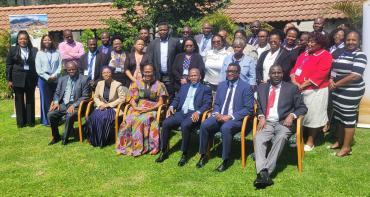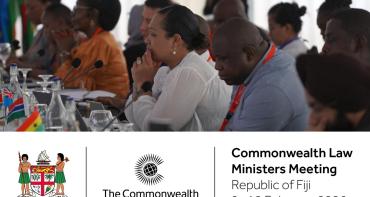Commonwealth law ministers and attorneys-general turned their attention to the fight against terrorism as they neared the end of their summit in The Bahamas.

Commonwealth law ministers and attorneys-general turned their attention to the fight against terrorism as they neared the end of their summit in The Bahamas.
The ministers considered a raft of recommendations, including strategies to review and strengthen legal frameworks and legislation to prevent the grooming and recruitment of foreign terrorists. The laws will also aim to stop them crossing borders and from being funded.
“Since the 9/11 attacks in the United States, the number of terrorist organisations has not only grown, but they have become much more organised and their structures continue to evolve through an ongoing process of fragmentation and affiliation,” said director of the Commonwealth’s Governance and Peace Directorate, Katalaina Sapolu.
She added, “According to the 2016 Terrorism Global Index Report, terrorism remains highly concentrated with most of the activity occurring in just five countries, of which two are Commonwealth countries.
“Aided by the rapid revolution of technology, terror attacks are becoming more frequent and more frightening and it is difficult to articulate the depth of the pain and sorrow they have inflicted on so many families in so many countries. So it is critically important for our law ministers to explore, discuss and agree on strategies to stop extremists in their tracks.”
Law ministers agreed to share experiences and put in place measures to address the phenomenon of foreign terrorists in line with the United Nations resolution 2178. They also agreed that non-coercive measures should be adopted where necessary and/or in combination with criminal justice approaches.
“Where appropriate, member countries should be able to prosecute, rehabilitate and reintegrate returning terrorists; and stop the recruitment, training, organising, transporting or equipping of anyone to commit acts of terror,” said legal adviser for criminal justice Shadrach Haruna.
Putting the Commonwealth’s assistance in legislative reforms in perspective, its Guide to Legislative Reform was launched during a side event at the ongoing meeting. The guide is designed to assist member countries in the implementation of the United Nations Conventions and the reform of other critical legislations to address rule of law issues in member countries.
The new resource will take lawmakers step-by-step through the processes involved in making good legislation.
This resource, Commonwealth experts say, will help countries to implement effective legislations in a host of areas, including climate change, ending early and forced marriage, and gender equality. It would particularly be of value for small jurisdictions, facing significant challenges to draft or reform legislations.



